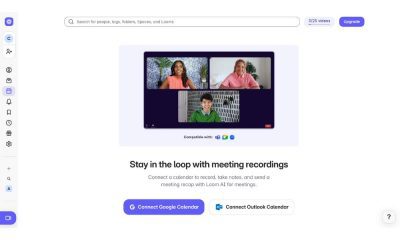Technology
Top 10 5G Mobile Phones in 2024
Published
11 months agoon
By
Kai Kelis
If you’ve been looking for the best 5G mobile phones in the market, here’s a list you should check out.
1. Apple iPhone 15 Pro Max
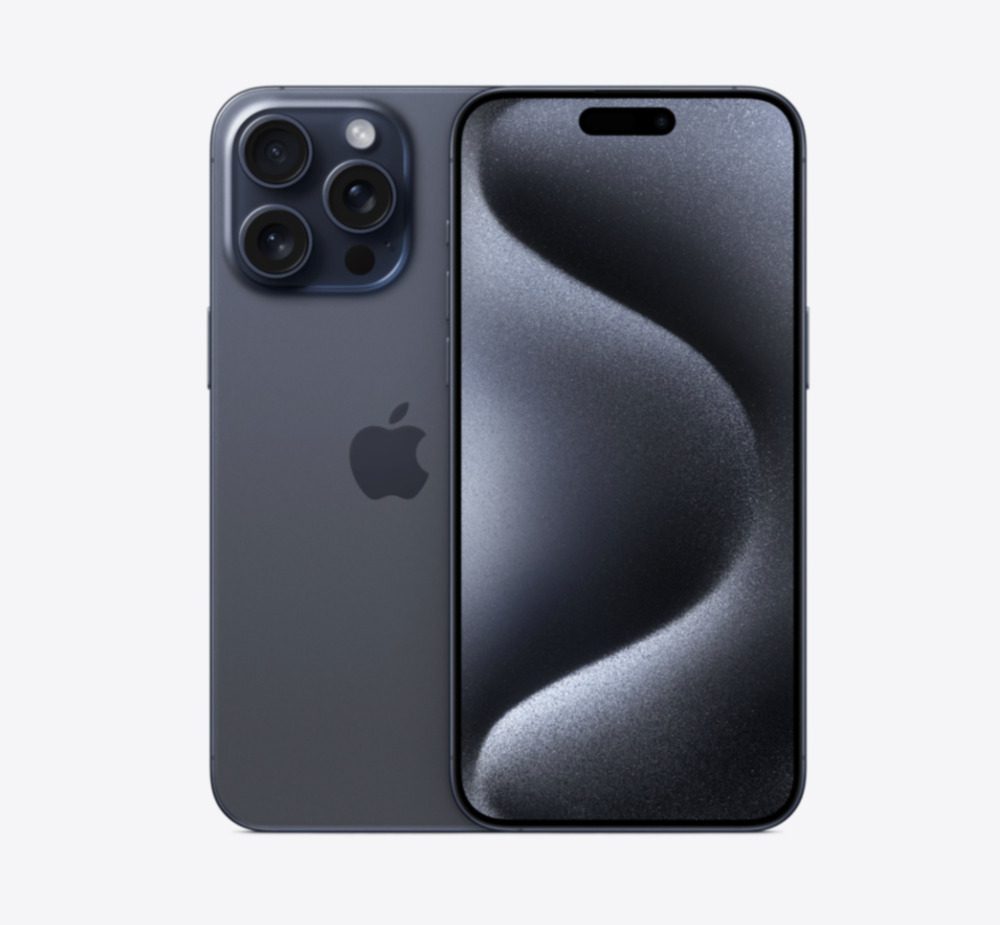
Nothing beats getting an iPhone designed for everyday use—even for professional needs! The Apple iPhone 15 Pro Max boasts a 6.7-inch screen with a Super Retina XDR display. It’s durable and lightweight, like all iPhone models, due to its titanium make. The camera features a 48MP primary camera, ensuring you get crystal-clear images. It also has a 12MP ultra-wide camera, a 12MP telephoto camera, and a 5x optical zoom. It’s fast and efficient with an A17 Pro chip.
2. iPhone 15

If you want a slightly smaller version of the iPhone Pro Max, then get the Apple iPhone 15 model. It offers a 6.1-inch display with a Super Retina XDR display and a ceramic shield front cover. Like the Pro Max, the iPhone 15 boasts a 48MP main camera, 12MP ultra-wide camera, and 4K HDR video recording. It runs on an A16 Bionic chip, and the battery life runs up to 20 hours of videos. Like other high-end models, the iPhone 15 is water-resistant and can withstand up to six meters for 30 minutes. This model offers robust performance, versatile charging options, and excellent camera capabilities.
3. Samsung Galaxy S24 Ultra

Samsung is another contender for the best 5G mobile phones. It boasts a 6.8-inch screen, slightly bigger than the iPhone 15 Pro Max. The screen features a dynamic AMOLED 2X display and QHD+ resolution. You can choose storage options from 256GB to 512GB and 1TB. It also runs on a Snapdragon 8 Gen 3 processor with RAM of up to 16GB. Its main camera is at 200MP, with 10x optical zoom! It’s double that of the iPhone 15 models! This Samsung model also has a titanium frame, a Gorilla Glass back, and is water resistant.
4. Google Pixel 8a

The Google Pixel 8a is a mid-range smartphone packed with impressive features. It boasts a 6.1-inch AMOLED Actua display with a 2400×1080 resolution, 120Hz refresh rate, and peak brightness of 1,400 nits. Powered by the Google Tensor G3 processor, it includes 8GB of RAM and offers 128GB or 256GB of storage. The camera setup features a 64MP main sensor, a 13MP ultra-wide sensor, and a 13MP front camera. With a 4,492mAh battery supporting 18W wired and wireless charging, it runs on Android 14 and offers 5G connectivity, an under-display fingerprint sensor, and seven years of Android updates. Available in Aloe, Bay, Obsidian, and Porcelain.
5. Google Pixel 8 Pro

The Google Pixel 8 Pro is a solid phone with impressive specs. It has a 6.7-inch Super Actua LTPO OLED display that’s super sharp with a 1344 x 2992 resolution and an adaptive refresh rate of 1Hz to 120Hz, peaking at 2000 nits brightness. It runs on Android 14 with the Google Tensor G3 chipset, backed by 12GB of RAM. You can choose from storage options ranging from 128GB to 1TB. The camera setup includes a 50MP primary, 48MP ultra-wide, 48MP telephoto lens, and 10.5MP front camera. It’s powered by a 5050mAh battery with 30W wired and 23W wireless charging. Other cool features include AI-powered camera tricks and IP68 water resistance, available in Obsidian, Porcelain, and Bay.
6. Motorola Edge
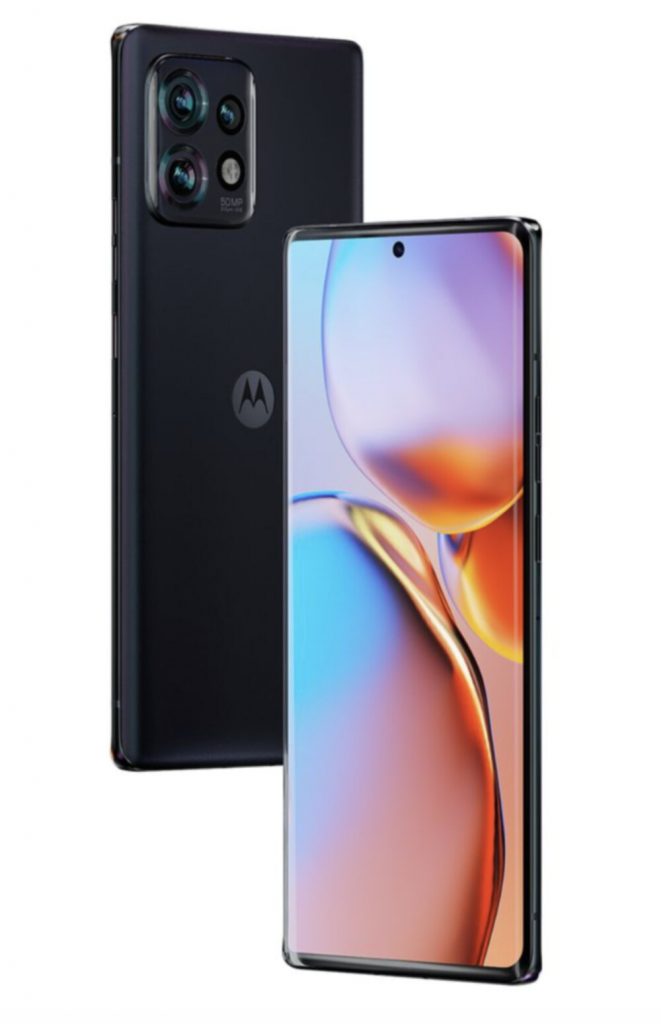
Motorola has also released a model comparable to the other 5G mobile phones on this list. With an Android 14 operating system, it’s fast and efficient for personal and professional use. Weighing only 213 grams, this 6.6-inch screen display is convenient to carry and is built for enhanced user experience. It features an FHD+ display with a 144Hz adaptive refresh rate and excellent Dolby Atmos support. It runs on a Qualcomm Snapdragon 7s Gen 2 processor, with a 69W TurboPower wired charging. Its 50MP camera with 13MP ultra-wide sensor and 32MP front camera with autofocus can match all the other mobile phone cameras in the market.
7. OnePlus 12R

The OnePlus 12R packs a punch with its 6.74-inch AMOLED display boasting a sharp 2772 x 1240 resolution and a smooth 120Hz refresh rate. It runs on Android 14 with OxygenOS 14 and is fueled by the Snapdragon 8 Gen 2 processor. You can choose between 8GB or 12GB of RAM and up to 512GB of storage. Its camera setup includes a 50MP main sensor, an 8MP ultra-wide lens, a 2MP telephoto lens, and a 16MP front camera. The 5500mAh battery supports speedy 100W charging. With 5G, Wi-Fi 7, and Bluetooth 5.3, it’s a well-rounded, high-performing device with a sleek design.
8. Xiaomi 15 Pro

The Xiaomi 15 Pro stands out with its 6.7-inch LTPO AMOLED display, offering a sharp 1344 x 2992 resolution and a blazing 165Hz refresh rate. It’s powered by the Snapdragon 8 Gen 4 chipset and up to 18GB of RAM, ensuring top-notch performance. The camera setup includes three 50MP lenses and a 60MP front camera, with 8K video recording. Its 5050mAh battery supports fast charging up to 120W and wireless charging. It has 5G, Wi-Fi 6e, and IP68 water resistance features.
9. Redmi Note 13 Pro

Don’t be deceived by the Redmi Note 14 Pro’s plastic frame—it’s more durable than you think! It features Gorilla glass on the front and glass on the back. Weighing only 187 grams, this is one of the lightest 5G mobile phones on this list. It’s dust—and splash-resistant, too! It offers an AMOLED display with 68B colors and Dolby Vision on a 6.67-inch screen. It also features Corning Gorilla Glass Victus for added protection. The main camera is at 200MP, and the dual-LED and dual-tone flash are perfect for capturing crisp photos!
10. Realme 12

Last but not least is the Realme 12, which features a 6.7-inch FHD+ display with a 120Hz refresh rate for speed and efficiency and 950 nits peak brightness for sunny days. It’s powered by the MediaTek Dimensity 6100+ 5G processor, paired with 8GB of RAM and 256GB of storage. The 108MP camera offers impressive 3x in-sensor zoom, and the device sports an ultra-slim 7.69mm design. With a 5000mAh battery and 45W SUPERVOOC charging, it keeps you going all day! Running on Realme UI 5.0 based on Android 14, this phone blends performance and style effortlessly.
You may like
Technology
Explained: What Is the Deeper Connect Pico and How Does It Work?
Published
2 weeks agoon
June 13, 2025
With more and more internet users putting a premium on privacy, Deeper Connect Pico has been earning attention.
The palm-sized gadget promises to decentralize privacy, perfect for home and entertainment. But is it worth the investment? In this post, we unpack what the Deeper Connect Pico is, how it works, who it’s for, and why it might be the next must-have tool in your tech lineup.
What Is the Deeper Connect Pico?
Deeper Connect Pico is a pocket-sized decentralized private network (DPN) router that lets users access Wi-Fi securely from anywhere.
Because of their global private network, users can save costs on sites like Netflix, Spotify, YouTube, and more. It also offers an ad-free experience.
Next, because a user will maintain a node or entry point to the decentralized network, a user of a Deeper Connect Pico can actually make money from owning the hardware.
In fact, it can be used as an alternative to other crypto miners like MXC miner, RAK miners, or helium miners. To sum it up, besides being a secure way to access the internet, it is also an energy-efficient crypto mining device. In fact, most Deeper Connect Pico review online are from crypto miners.
How Does the Deeper Connect Pico Work?
As a blockchain-powered device, the Deeper Connect Pico hinges on other users as entry points. It is unlike a regular VPN, where users are clients of a private service provider.
Instead, the Deeper Connect network lets a user connect to the internet through nodes run by fellow users across the globe. Here, nodes are entry points, usually the home IP addresses of users.
To use the device, simply plug in the antenna attachment that comes with the product and plug it into a power source. This can be a charging outlet, a power bank, or even another device. The light should turn red, signalling that it is on.
Because it does not have a central server, Deeper encrypts your user access logs, making it more secure than other options.
Key Benefits of Using Deeper Connect Pico
Unlike other VPN services, the device is only purchased once, so users do not need to pay a subscription fee. This makes it a good choice for people who want to save money.
The Deeper Connect Pico’s strongest feature is its enterprise-level network security. Because of this, filtering internet ads and tracking features are easier. Besides this, it can also identify and block cyberattacks.
Furthermore, it also has strong geo-unblocking features. This is helpful for people who live in countries where access to certain social media platforms is limited. This could also be helpful for people who want to save subscription costs on sites like Netflix, which have adjusted rates in certain regions.
Finally, it comes in a travel-friendly size that makes it handy to bring around on trips. Plus, it provides coverage for living spaces of 1500 square feet. That said, you can use it to connect to public WiFi when traveling without worrying about the risk.
With a max local speed of 100 Mbps, the hardware can support multiple devices at the same time. In fact, it supports 4K video playback on five devices at the same time. Plus, according to their website, Deeper’s private network has over 200K servers.
Price
Compared to other products by Deeper, the Pico is in the middle price range. The Deeper Connect Pico price is at $199, although it is currently on sale for $129. In turn, the Deeper Connect Pico Lite costs $119.
Meanwhile, the more travel-friendly option, Deeper Connect Air, retails for $210.
On the flip side, there’s also the Deeper Connect Mini, a new router product that costs $229. It has a 1 Gbps speed and a 7-layer firewall.
Use Cases and Who It’s For
Deeper Connect Pico is good for frequent travelers who want to safely use the Wi-Fi in airports, cafes, and lounges. It is a solid choice for people concerned with cybersecurity and privacy. Plus, it is a solid option for people who want an ad-free experience on their web and mobile devices.
It has an easy plug-and-play setup, which makes it great for people on the go.
It is also great for people who want to bypass IP trackers to access streaming sites like Netflix.
Besides this, though, Deeper Connect Pico can also be used to mine crypto with ease. It is a great product for crypto miners as users only buy the hardware once.
Limitations and Considerations
People who want to invest in Deeper Connect Pico usually use it to mine cryptocurrency. If you are not particular about whether you want to use a centralized or decentralized private network, then you might find a limited difference between this device and a normal VPN service provider.
One consideration users should have when using the device is the bandwidth sharing. This might not bother users who have good internet to begin with, but it might bother others more. The feature, though, can be disabled.
Apart from this, you might also notice slightly reduced internet speeds.
Deeper Connect Pico Amazon review articles are a mix online. Most rave about the device, but some mention that the network does not work. Others also raise that they cannot get some features, like the Wi-Fi adaptor, to work.
If you compare the Deeper Connect Pico vs Air, the latter has more Mbps capacity and is lighter.
Final Thoughts
The Deeper Connect Pico is a bold experiment in decentralized internet access, wrapped in a sleek, palm-sized shell. It’s best for:
- Privacy-conscious users
- Frequent flyers
- Crypto enthusiasts
- Casual streamers looking to save on subscriptions
If you’re any or all of the descriptions above, then the Pico offers real value. Its one-time purchase model, combined with built-in ad-blocking and mining capabilities, makes it stand out in a sea of subscription-based VPNs and traditional routers.
That said, it’s not for everyone. If you’re expecting blazing-fast speeds or a plug-and-forget experience like with mainstream VPN apps, you may need to lower your expectations. The device still relies on bandwidth sharing and user-managed nodes, which can sometimes mean inconsistent performance.
But for those willing to explore a new way of connecting—and earning—the Deeper Connect Pico could be a surprisingly powerful tool in your digital toolkit.
And if you want to get more news and stories, read more here at Owner’s Mag!
Technology
10 Social Media Marketing Tools to Check Out in 2025
Published
2 weeks agoon
June 13, 2025
The social media landscape is changing, and in a few short years, new tools will enter the market. While many of these tools have been used for marketing your business successfully in recent years, only a handful are worth investing in as they will become popular. Here are our best bets for social media marketing tools:
1. Sprout Social
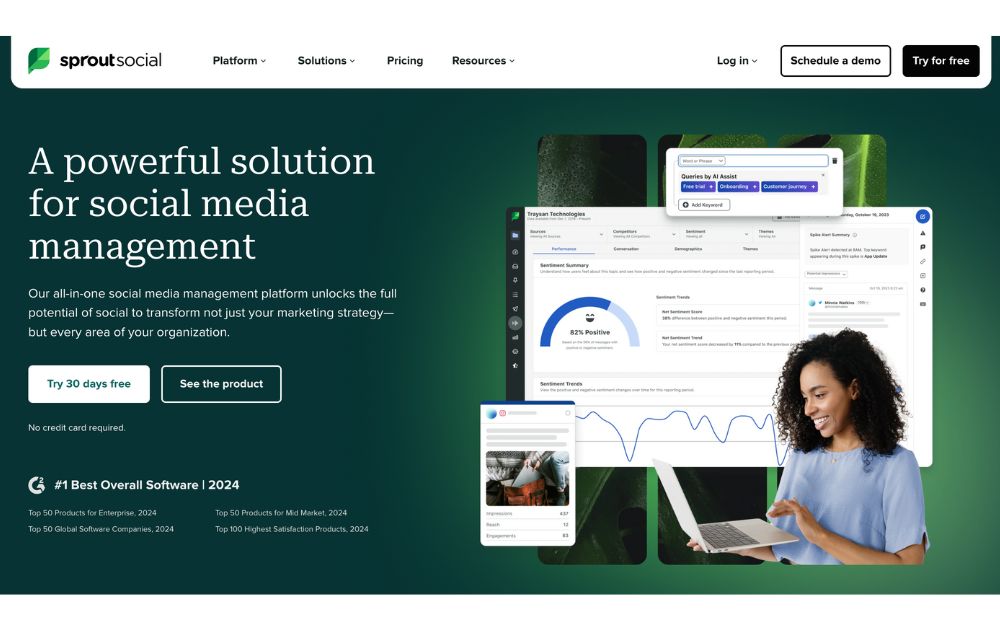
An all-in-one social media marketing tool, Sprout Social enables businesses to effectively manage their online presence and engage with their customers across all social networks. It allows businesses to monitor conversations, publish content, and track performance across their social media accounts.
Additionally, it offers advanced analytics and insights to help businesses understand their audience and optimize their content strategy. Sprout Social has a free trial, which you can upgrade to any of its paid plans with prices starting at $199 per month.
2. Hootsuite
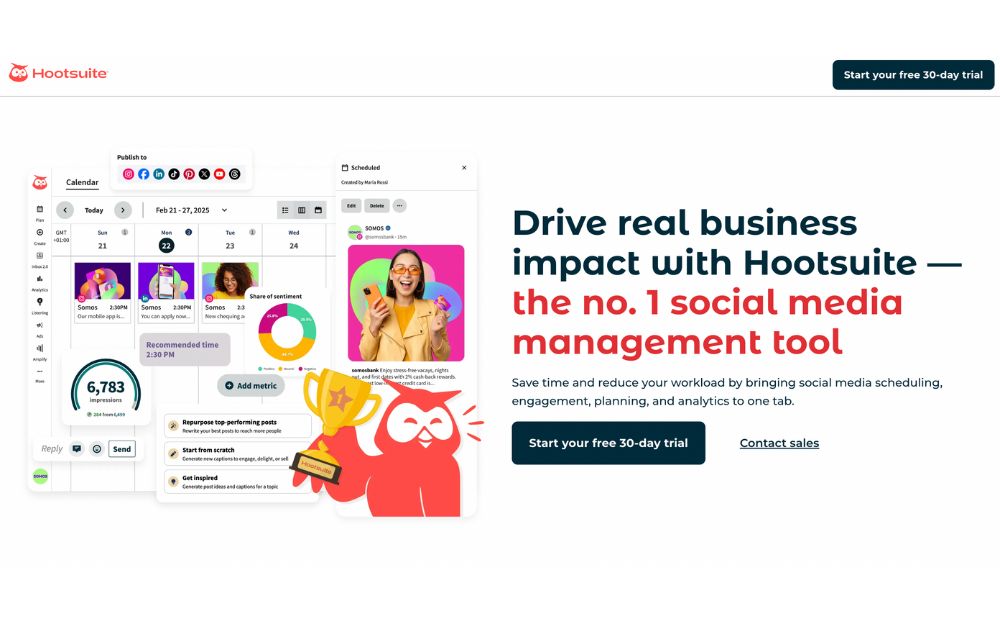
Another popular social media marketing tool, Hootsuite helps businesses efficiently manage their presence across multiple social networks. It provides features such as scheduling and publishing content, monitoring conversations, and tracking performance metrics. Furthermore, it offers advanced analytics to help businesses gain insights into their audience and optimize their content strategy.
Hootsuite also offers a variety of integrations with popular third-party services such as Mailchimp and Salesforce that allow businesses to extend the tool’s capabilities further. Start using this social media marketing tool for as low as $99 per month.
3. AgoraPulse

AgoraPulse is a powerful social media management tool that helps you stay on top of your social media activity. You can use it to monitor conversations about your brand, respond to comments and messages, and analyze the performance of your content. It also provides detailed insights on how to improve your results.
AgoraPulse is excellent for larger teams, as it allows you to assign tasks to different team members and keep track of the progress. Its pricing stats at $79 per month.
4. Buzzsumo
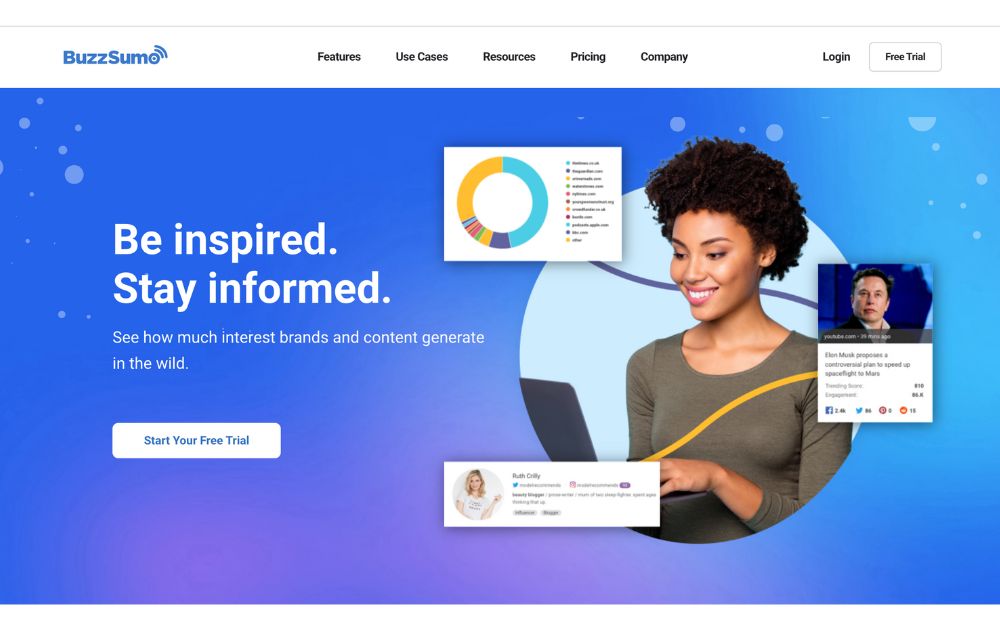
Want to know the most popular content in your niche? Buzzsumo is the social media marketing software you need. It is a powerful content marketing tool that allows you to see the engagement and shares of each post, giving you insight into what is working and what isn’t.
With the help of Buzzsumo, you can quickly identify the top influencers in your industry and target them for collaboration. It offers a free but limited plan. If you need more features, you can choose from its paid plans with prices starting at $199 per month.
5. Later

Later is a popular social media management platform best known for its visual content calendar. It’s an ideal tool for scheduling posts on the best social media platforms for ecommerce, including Instagram and Facebook. With its drag-and-drop interface, you can plan posts visually and preview your feed before publishing.
It also features Smart Scheduling, a Hashtag Suggestion tool, Linkin.bio for Instagram traffic tracking, and AI-powered post-writing assistance to streamline your workflow.
If you’re looking for social media marketing tools free of charge, Later offers a free plan with basic tools, while paid plans start at $16.67 per month depending on the number of social profiles and users.
6. Semrush Social
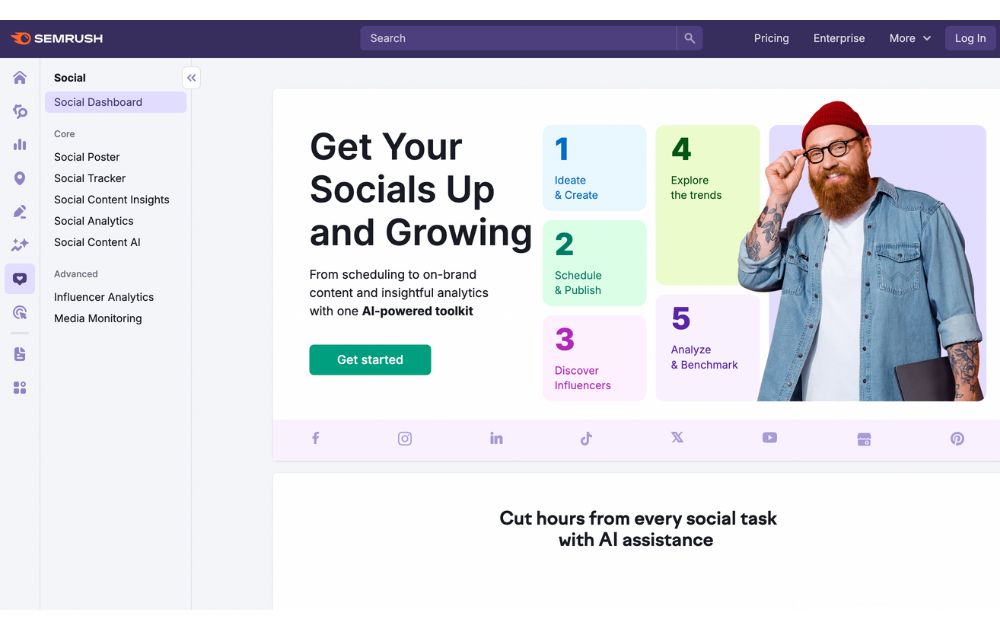
Next on our social media marketing tools list is Semrush Social, which gives marketers the power to schedule, draft, and analyze social media posts across Facebook, Instagram, LinkedIn, Pinterest, and X.
The platform allows AI-generated captions, built-in image editors, and easy performance tracking, making it among the best social media marketing tools for many users.
Semrush Social is included in Semrush’s Pro, Guru, and Business plans, starting at $139.95 per month. A free trial is available for first-time users.
7. Iconosquare
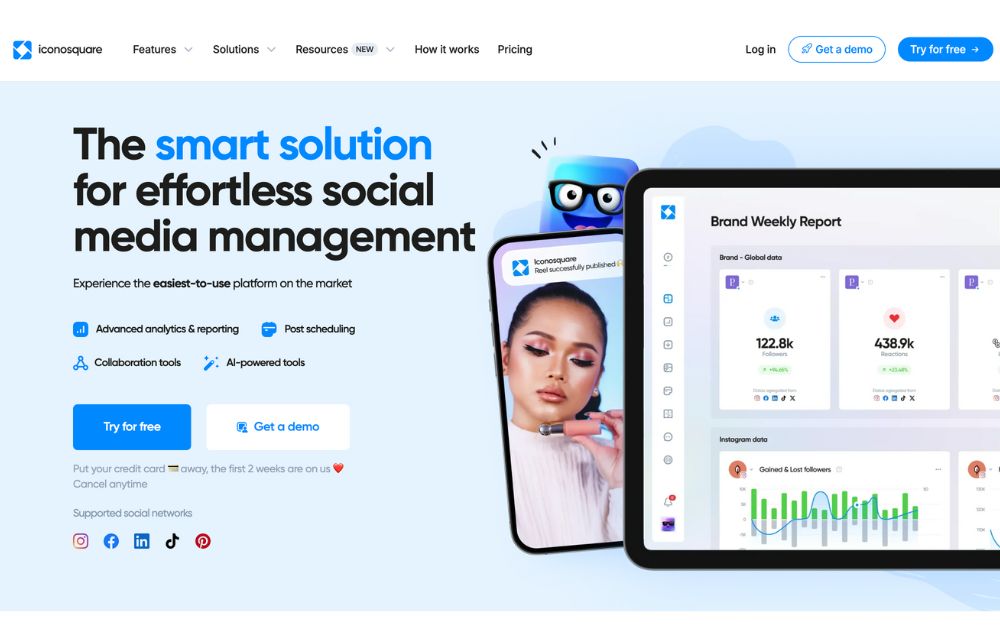
Also included in our top 10 social media marketing tools is Iconosquare is a powerful analytics and scheduling tool made for Instagram, Facebook, LinkedIn, and TikTok. It offers in-depth performance tracking, content planning, and industry benchmarking to help businesses on top of their accounts on social media marketing platforms.
Iconosquare offers a free trial, with paid plans starting at $33 per month for individuals.
8. Buffer
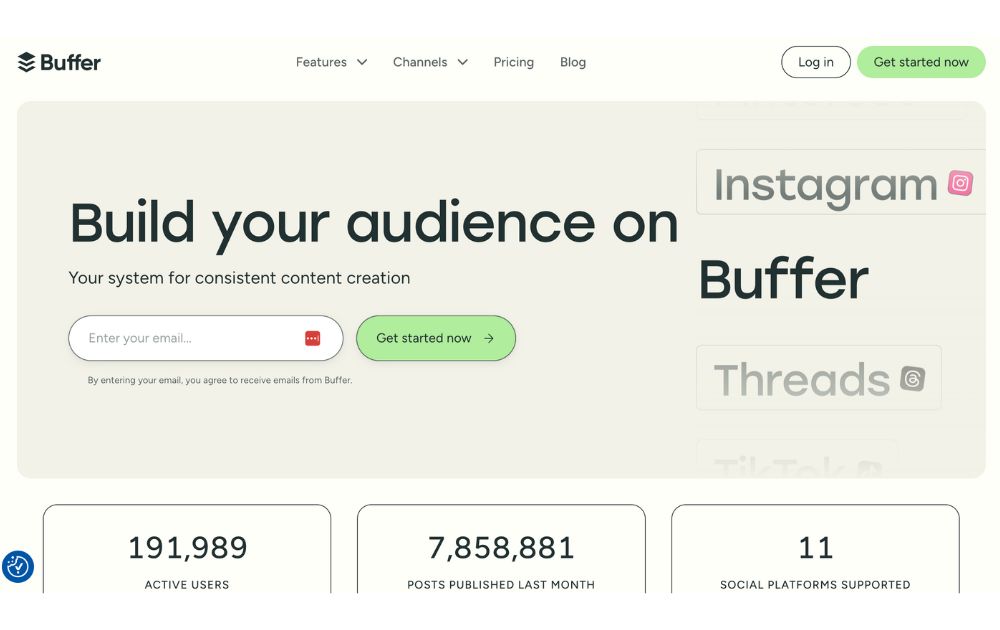
Buffer remains one of the most reliable social media management tools in 2025, offering simple post scheduling, team collaboration, and basic analytics. It supports Facebook, Instagram, X, Pinterest, LinkedIn, YouTube, and Mastodon.
Its clean dashboard is easy to navigate, making it perfect for small business owners and solo marketers. Buffer also features an AI Assistant to generate post ideas and captions, plus a start page feature to build basic landing pages linked to social bios.
Buffer offers a free plan with limited scheduling, and paid plans start at $6 per month per social channel.
9. Adobe Express
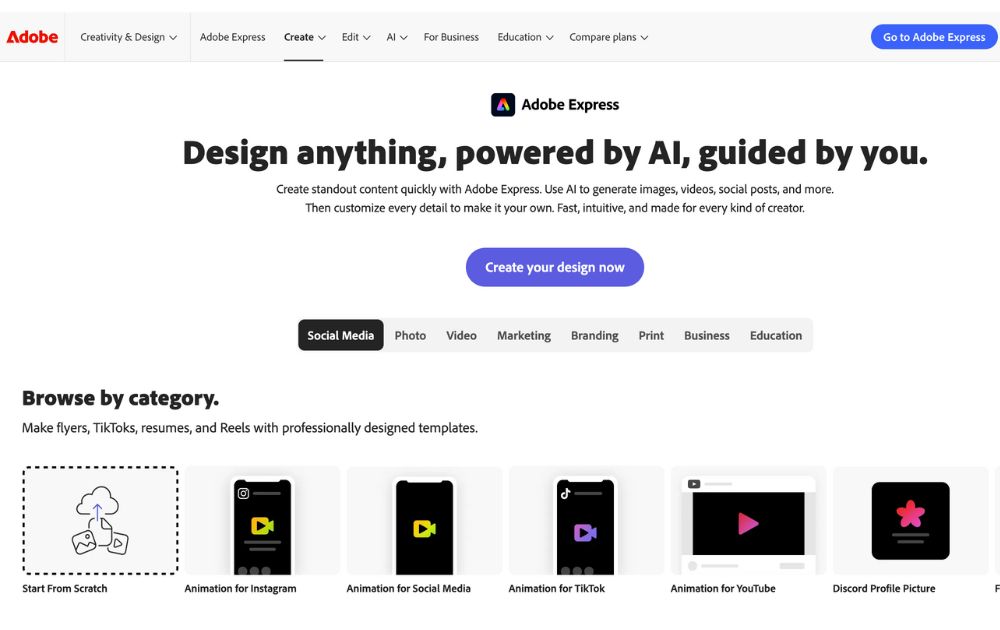
Adobe Express combines graphic design and social media marketing in one tool. It allows users to create scroll-stopping posts, videos, and stories using its vast template library and AI-powered tools. You can then schedule and publish directly to Facebook, Instagram, and Twitter without leaving the app.
Adobe Express offers a free plan with basic tools, while the Premium version costs $9.99 per month with added social scheduling and branding features.
10. Canva
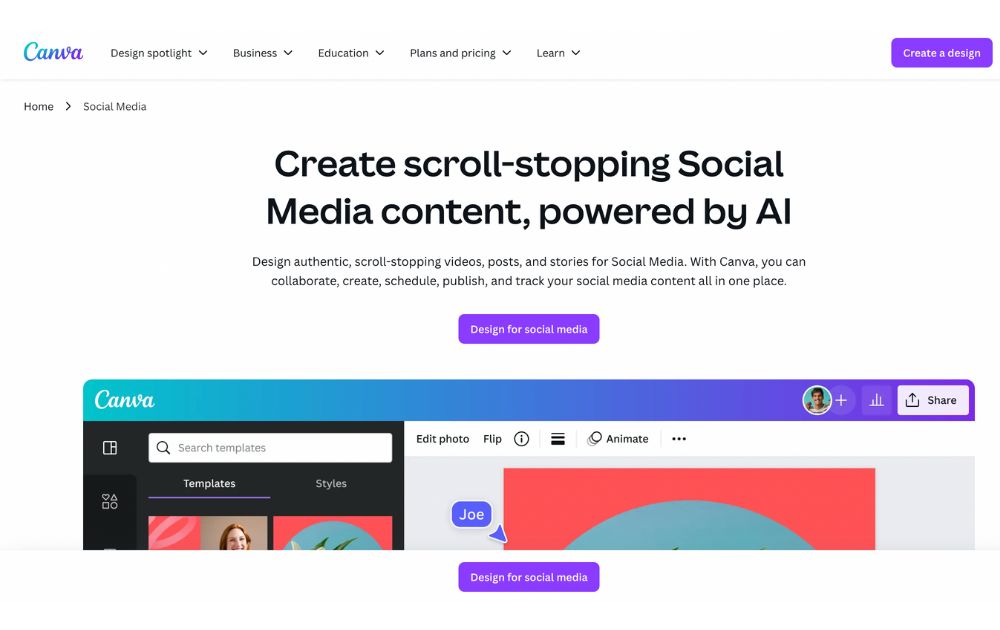
Last but not least in our featured social media marketing tools is Canva, which has become more than a design tool and is now a full-fledged social media management platform. With Canva, you can design graphics, edit videos, and publish posts to multiple platforms like Facebook, Instagram, LinkedIn, Pinterest, TikTok, and X.
The Content Planner lets you schedule posts directly, while AI-powered features like Magic Write help you draft captions. Canva also provides brand kits, design resizing, and collaboration tools—perfect for teams working remotely.
Canva offers a free plan with generous features, while Canva Pro starts at $14.99 per month.
Final Thoughts
Social media marketing tools are an essential part of any successful business strategy. The tools mentioned in this article provide a great starting point for any business looking to engage its audience on social media and grow its reach. By leveraging these tools, companies can create content, measure performance, and increase their reach on social media in 2025.
Technology
The 10 Best Small Business Budgeting Software for 2025
Published
2 weeks agoon
June 12, 2025
Managing a business means careful planning, from product development to budgeting finances. More so if you’re a small business. This is the reason you need a budgeting software made specifically for you. Here are ten of the best small business budgeting software programs to try out in 2025:
1. Google Sheets
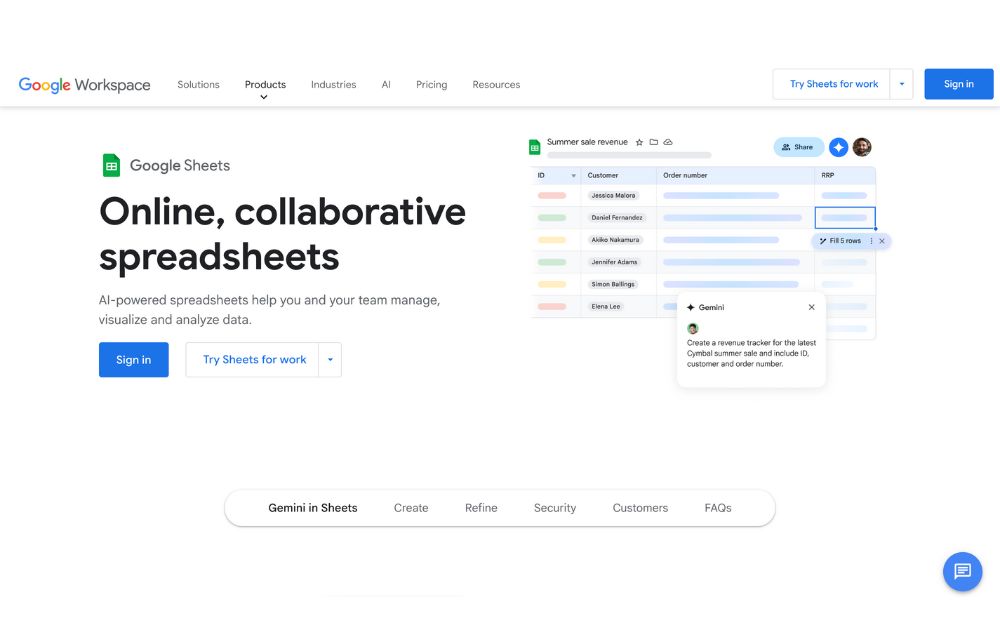
Track and monitor your spending habits with Google Sheets. It is a favorite of many small business owners, as you can use it completely free! It is flexible, robust, and has collaborative features that larger businesses can also appreciate. It has various templates and lets you link it to third-party applications to import your bank transactions automatically.
Google Sheets is free to use; all you need is to create a Gmail account. However, you can purchase Google Workspace if you need more features and larger storage space.
2. Float
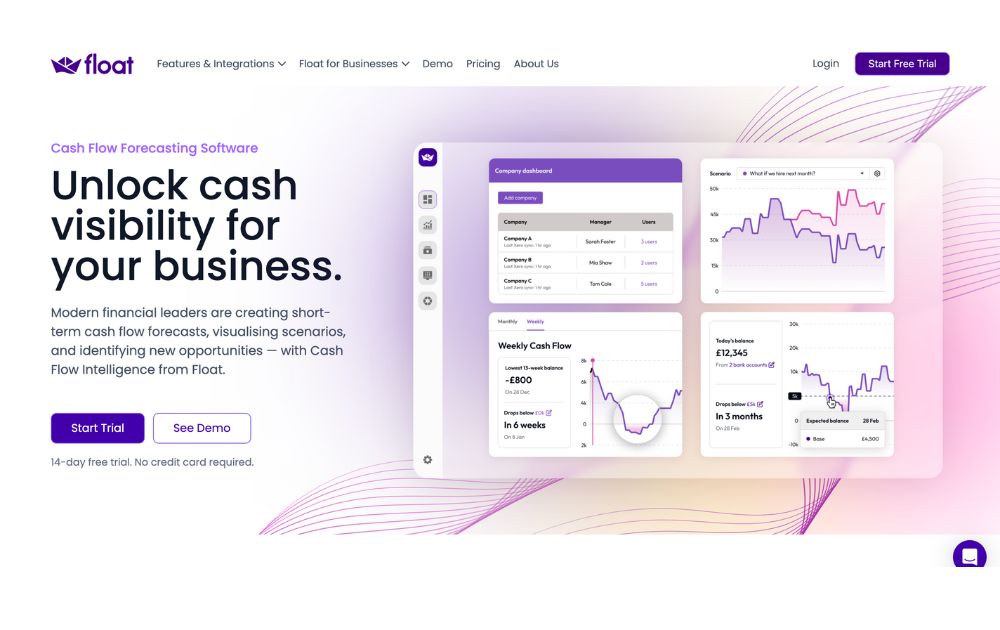
Float is a powerful cash flow forecasting and budgeting tool, making it a practical small business budgeting software. It connects directly with your accounting software (Xero, QuickBooks, or FreeAgent) and pulls real-time data to help you track your finances effortlessly.
With Float, you can visualize your cash flow, set budgets, and plan for different financial scenarios without getting lost in spreadsheets. In addition, it offers an intuitive dashboard, giving business owners clear visibility over short- and long-term finances.
Float offers a 14-day free trial. After that, pricing starts at £40 per month, depending on your accounting software and the number of users.
3. Xero
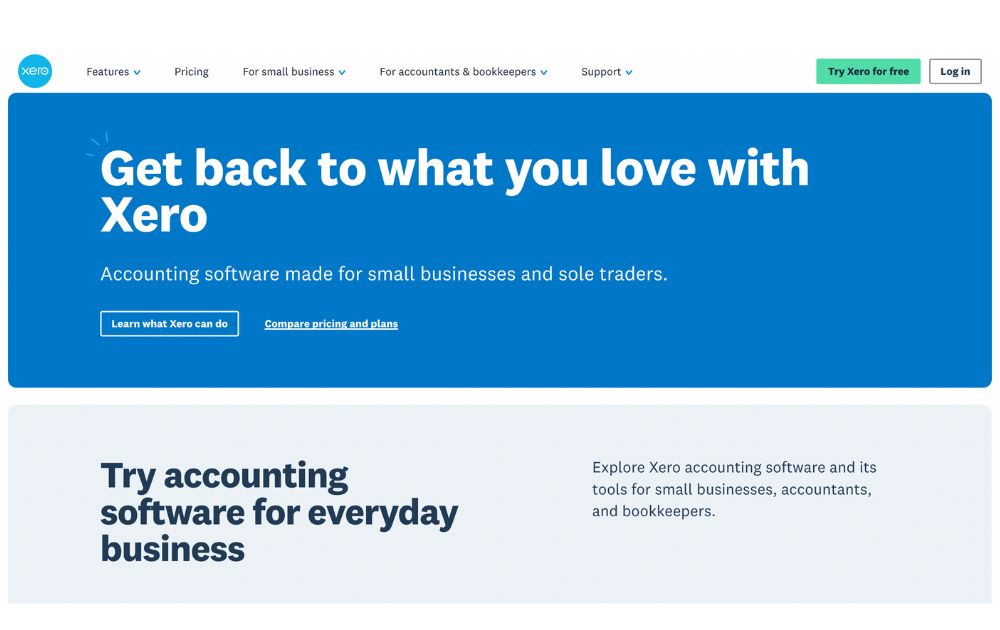
Working mainly as a cloud accounting software, Xero has built-in budgeting features that are useful for small businesses. It can help you generate and track budget and accounting reports. Xero can also manage fixed assets, which many budgeting and accounting software lack.
This small business budgeting software has three subscription plans. Its pricing starts at $29 per month, but they offer discounts that could go as low as $2.90 per month. Each plan lets you get add-ons depending on the features you need. You can get its 30-day free trial to see if it would be an excellent fit for your business.
4. Freshbooks
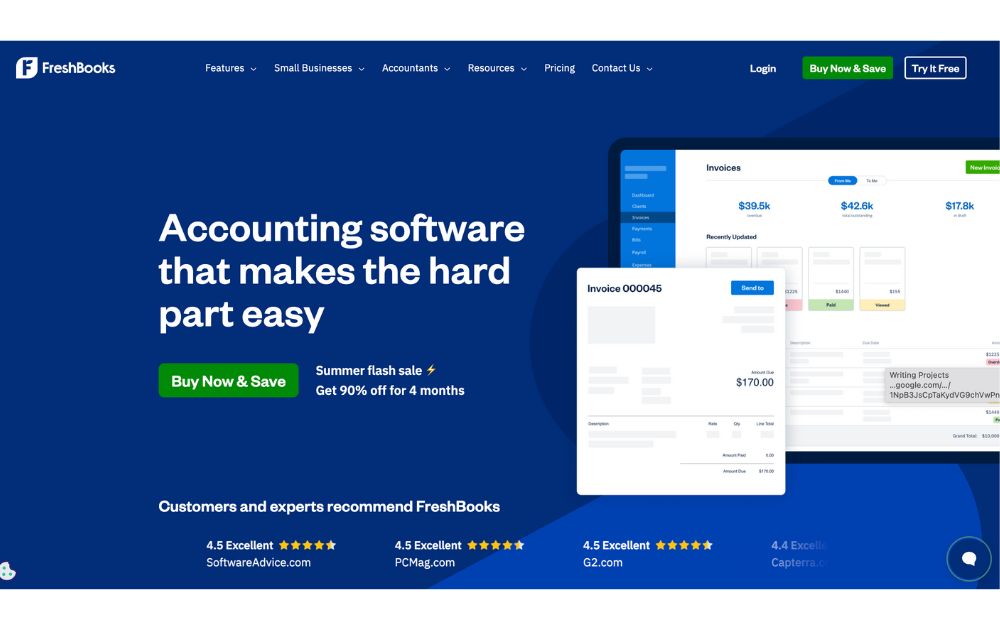
Create and view estimates and manage your budget easily with FreshBooks. Not only will it help you with budgeting, but it will also help you track income statements, expenses, balance sheets, and other financial statements. Its efficient expense tracking system lets you create and view estimates and manage your budget.
One of the more affordable budgeting apps, you can get Freshbooks for as low as $2.10 per month.
5. QuickBooks
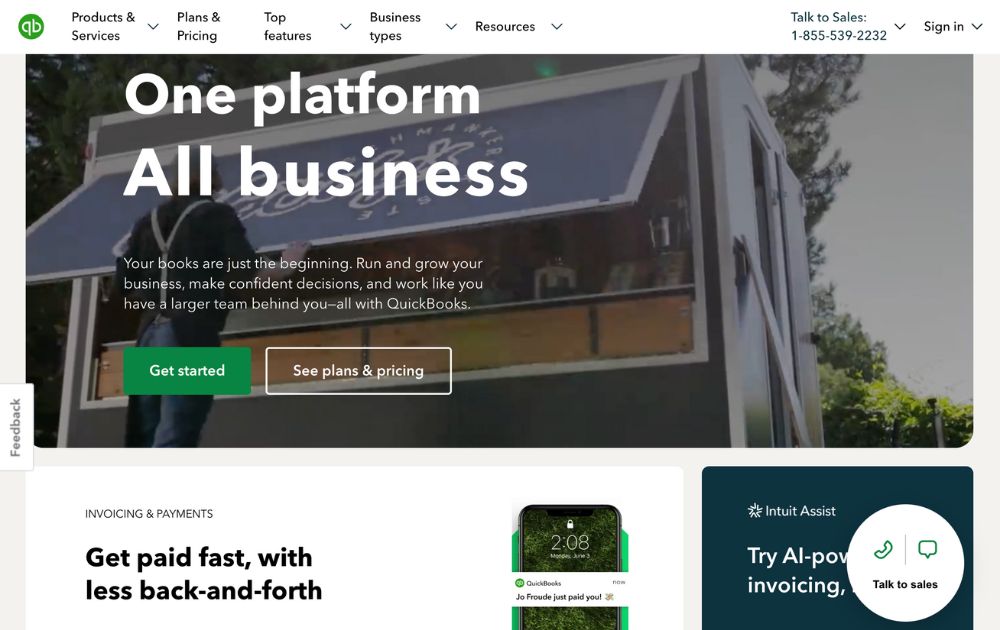
Cloud accounting software Quickbooks is one of the most popular budgeting software for accountants the world over. It is filled with useful features such as expense tracking, budget planning, and custom reporting, among many others. Simply put, it is an all-in-one budgeting and accounting app.
Quickbooks offers a free 30-day trial, but if you want to go ahead and use it, you can choose from its three cost-effective plans. Pricing starts at $3.50 per month.
6. LiveFlow
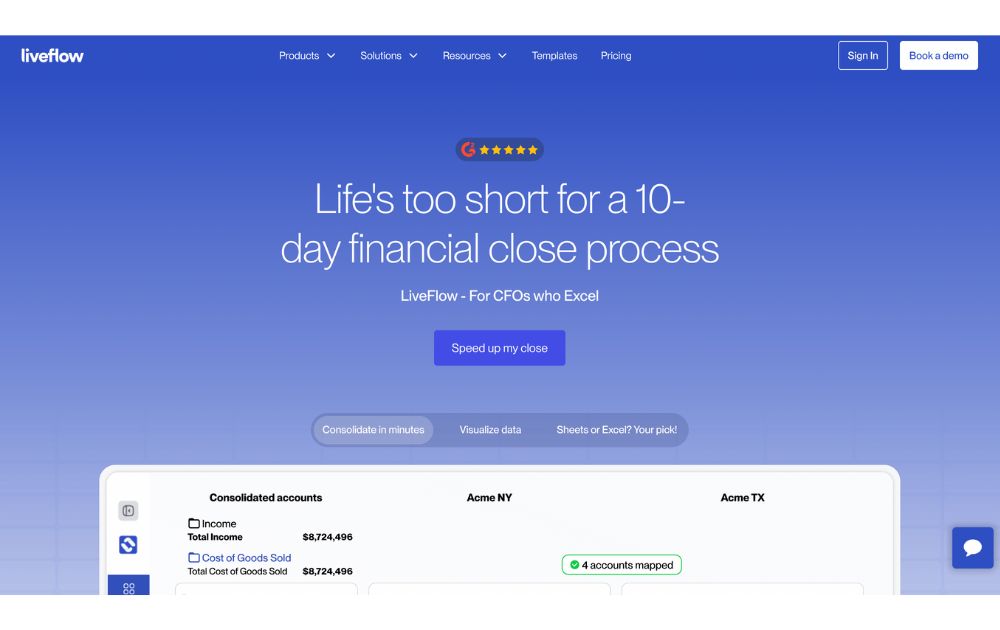
If you love Google Sheets but want more automation, LiveFlow could be one of the most practical small business organization tools for you. It syncs your accounting data (from QuickBooks Online and others) with your spreadsheets, giving you real-time visibility into your finances without needing to manually update your budget. You can also build custom dashboards and reports right within Google Sheets.
LiveFlow offers custom pricing depending on your business needs.
7. Zoho Books
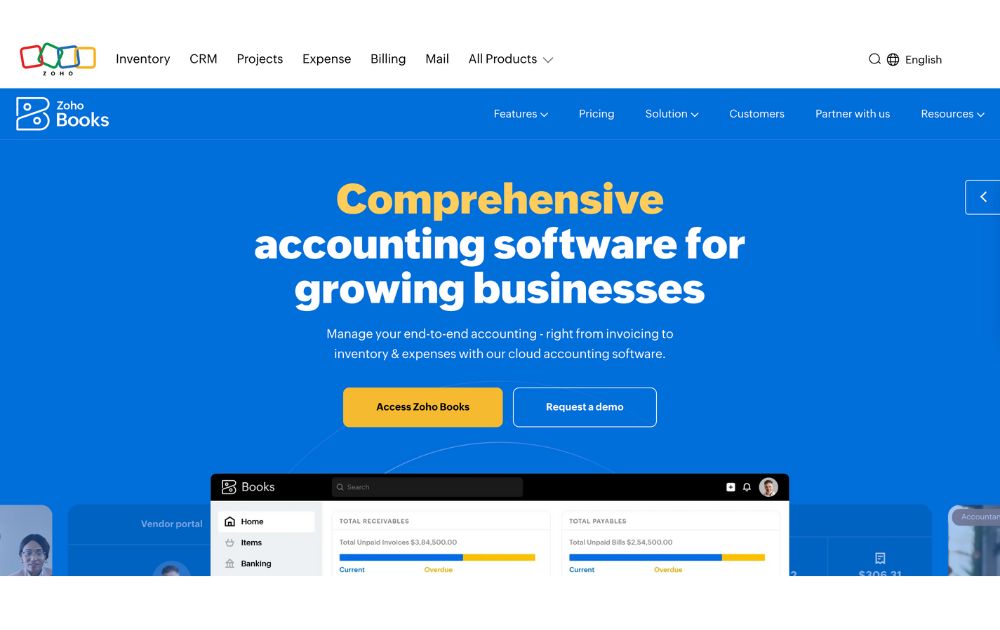
Zoho Books is a cloud-based accounting software that comes with built-in budgeting tools perfect for small businesses. It lets you create and manage budgets, automate banking tasks, and generate real-time reports. Zoho Books integrates seamlessly with other Zoho apps, such as Zoho Invoice, which is one of the most popular invoicing software for small business ventures.
If you’re looking for budget management software free of charge, Zoho Books offers a free plan for businesses with revenue under a certain threshold, and paid plans start at $15 per organization per month.
8. Relay

A business banking platform, Relay is a budgeting software with small businesses in mind. It allows you to create up to 20 free, no-fee checking accounts to help you organize your money into different categories. It gives you a glimpse of how much money you have in every expense category, among many other helpful features.
Relay offers two pricing plans that will suit any type and size of business. It has a free plan and the Relay Pro that will cost you $30 per business per month. Check out each to know what would suit your small business the best.
9. PocketSmith
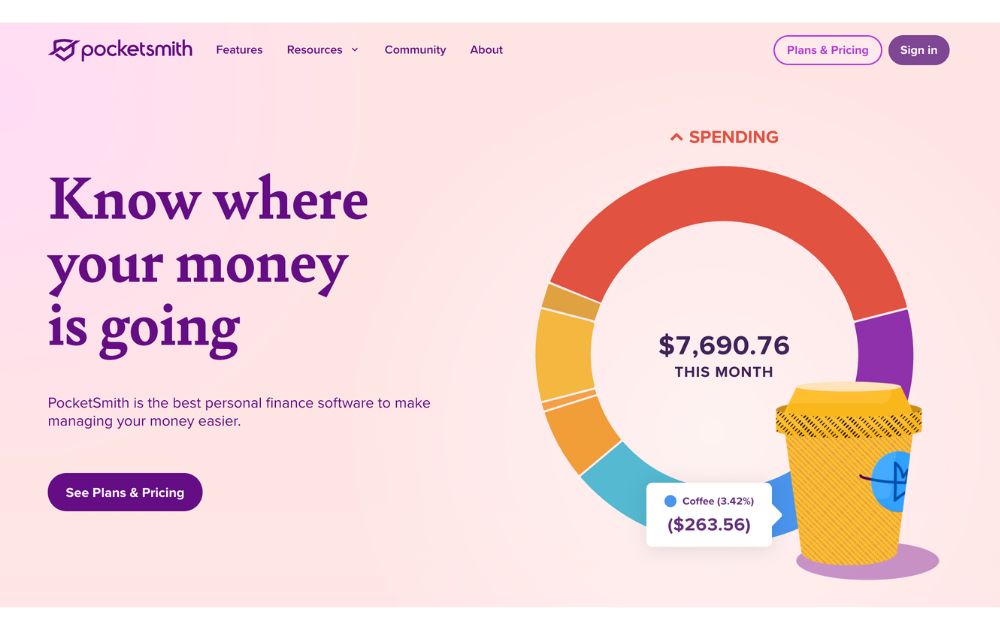
Next on our list of small business budgeting software options is PocketSmith, which takes a unique approach to budgeting by letting you view your finances on a calendar. If you’re a small business owner who wants to see the big picture when it comes to forecasting income, expenses, and savings, this could be the best small business budgeting software for you.
Though originally built for personal finance, its flexible features and multi-currency support make it a strong contender for solopreneurs and small business use.
PocketSmith offers a free plan with limited features. Paid plans start at $9.95 per month, with a 14-day free trial of its Premium tier.
10. Finmark
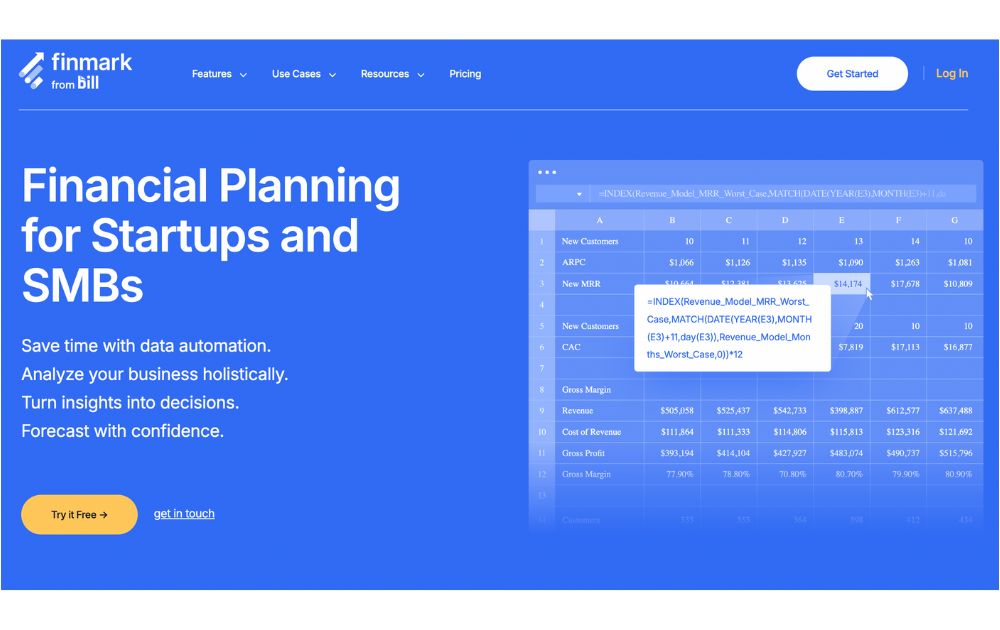
If your small business is ready for growth, Finmark offers robust budgeting, forecasting, and financial modeling features without the need for spreadsheets. You can manage runway, expenses, revenue, and headcount planning, all in one platform. It’s tailored for startups and small teams who need to make data-driven decisions without hiring a full-time CFO.
Pricing starts at $25 per month for one user, with custom pricing for larger teams. A free trial is available to test its core features.
Final Thoughts
Small business owners have a lot on their plate, and having software to make business management easier is always welcome. This list of budgeting software is explicitly designed with limited budgets in mind. They have already been filtered, and it’s up to you to choose the most suitable for your company.

Discover 2025’s Top 10 Online Banks for Smart Savings

Digital Nomads Flock To These 10 Amazing Tax-Free Cities

Loom Review: Features, Use Cases, and How It Stacks Up Against Zoom

10 Adventure Travel Destinations You Don’t Want to Miss

The Latest In The AI Boom: What Entrepreneurs Need To Know In 2025

Taylor Swift’s Fortune: The Billionaire Behind The Eras Tour

Explained: What Is the Deeper Connect Pico and How Does It Work?

BeReal App: Will It Ever Survive Its Instagram Clone?

Loom Review: Features, Use Cases, and How It Stacks Up Against Zoom

Failure to Launch: Why Pixar’s Lightyear is a Box Office Dud

Explained: What Is the Deeper Connect Pico and How Does It Work?

10 Social Media Marketing Tools to Check Out in 2025

The 10 Best Small Business Budgeting Software for 2025


